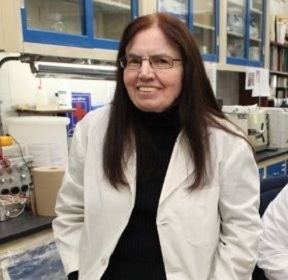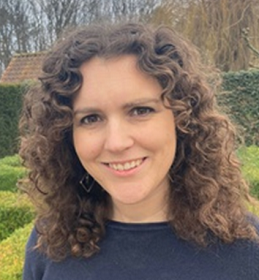Speakers
Soumya Sree Tangirala
Dundee Medical School, UK UKTitle: Personality disorders – who are we?
Abstract:
Personality disorders cover a wide range of areas and it is quite hard to understand. I suffer from borderline personality disorder and its hard for me to even get the idea of things. Terms are given not because it makes you suddenly a different person but so it is easier for you to find acceptance within yourself. In addition to this it allows other people to gain an understanding of our complex brains. There is simply not enough awareness of how common these personality disorders are and how it affects us on a daily basis. This talk will explain the types of disorders classification, how common they are and some real life stories from myself, managing my traits of borderline personality disorder.
Biography:
Soumya embarked on a Gap year in 2018 and worked as a care assisstant in a care home and a support worker for autistic adults. 2019 she got accepted into Dundee Medical School and now is a 2nd year medical student
Patricia A Broderick
New York School of Medicine, USA USATitle: The Electroactive Signal for the Tau Peptide: Neuromolecular Imaging (NMI): A LIVE Nanotechnology for Alzheimer, Parkinson and Epilepsy Disease
Abstract:
The Tau gene and its reported six Tau isoforms are known to be present in the brain of Alzheimer’s patients, When we attempt to discern Parkinson disease, Lewy Body Dementia and Alzheimer disease including other neurodegenerative disorders of asynchrony similar to epileptogenic seizures, we are met with a huge question mark as to both diagnose and treat because the central distinctions among these dreaded diseases are beset with confusing guidelines. To this point, previous post mortem studies have assayed Lewy Bodies, alpha synuclein, the amyloid precursor proteins and Tau but the limitations of “life after death” (post mortem) may simply add to mis-diagnoses. There is a need to cure the dementia of tauopathies! The BRODERICK PROBE® series of biosensors work by electrochemical detection and are comprised of carbon and/or carbon allotropes in one example and fiber optic proteins in another of the many examples. In the present study, the original carbon sensors, the carbon/lipid/phosphotidyl polymers were used to neuromolecular image Tau LIVE. The nanoprobe is unique from others as it is so tiny that it can be used anywhere and for any length of time; the operationally stable biomedical biosensors/nanoprobes do not cause gliosis (scar tissue) nor do they produce infection (bacterial growth). The results show that the nanoprobe acts to image Tau through mechanisms of phosphorylation. The LIVE electroactive image for Tau in the precise striatal basal neurons of the living Parkinson subject is actually seen here, online and within seconds likely as a metal complex, phosphorylated in a Parkinson subject. Thus, the elusive nature of Tau is further elucidated as a dynamic redox reaction occuring LIVE in the brain of the living Tau patient and animal via the BRODERICK PROBE®. Accepted as Clinical Paper/Technical Report by MedCrave (Case Reports Journal), April, 2021.
Biography:
Patricia A. Broderick has completed her PhD from St John’s University, Queens, NY, USA and her postdoctoral studies from The Albert Einstein Medical Center, Bronx, NY, USA and Cornell University Medical School, White Plains, NY, USA. Patricia serves as Tenured and Full Medical Professor in the Dept. of Molecular, Cellular and Biomedical Sciences at the City University of New York School of Medicine and as Director of the Neurobiology Course at the Sophie Davis School of Biomedical Education, CUNY School of Medicine, CCNY. A highly recognized expert and prominent editor, author, inventor and lecturer, Patricia has published more than 500 papers in reputed journals and sought after books and she serves as an editorial board member of repute worldwide. Dr. Broderick holds several patents and trademarks and is the Founder and CEO of Eazysense Nanotechnologies Inc.and the Broderick Brain Foundation.
Ann Marie Leonard-Zabel
Curry College, USA USATitle: Unchanging the brain: how to cope with uncertainty during difficult times
Abstract:
Whether one is facing a global, personal, or employment crisis, or perhaps experiencing a mix of all three, building resilience will assist in providing hope for not only the present but the future. This presentation will focus on brain-behavioral impact of stress and a range of mixed emotions upon one’s health and happiness. Evidenced-based approaches and resources, including user-friendly applications to use during moments of challenge and hardship will be discussed. A sample “Care Plan” will be reviewed which may assist one to experience resilience leading to a sense of calm and confidence to handle issues of concern.
Biography:
Leonard-Zabel is a Full Professor of Psychology and serves as the Psychology Department Coordinator at Curry College in Milton, Massachusetts. She owns and operates a private clinic specializing in School Psychology/School Neuropsychology and Clinical Forensic Examining. She holds diplomat and fellow certificates/certifications in Neuropsychology, Forensic Counseling and Examining, Psychotherapy, Autism, Addictions, Cognitive-Behavioral Therapy, Clinical Anxiety, Disability Analysis, Brain-Behavioral International Coaching, Telepractice and in Homeland Security. She was awarded the Lifetime Achievement Award from the American Board of Disability Analysts. Dr. Leonard-Zabel is the recent recipient of the Lifetime Achievement in School Neuropsychology from the American Board of School Neuropsychology. She serves on the Learning Disabilities Worldwide Congress as one of the Board of Directors (LDW). Dr. Leonard-Zabel recently received international awards acknowledging her Keynote addresses encompassing school neuropsychological research on assessment approaches involving Autism Spectrum Disorders, Adolescent Addiction, and Mental Health focusing on the Anxious Brain, Assessment Practices, Learning Differences, Ethics & Law and Traumatic Brain Injury. Dr. Leonard-Zabel was awarded in December 2019 the title of Global Goodwill Ambassador (GGA), representing the USA with the “Humanitarian” designation for her volunteerism both nationally and internationally. Throughout her career at Curry College, she was awarded the Curry College Excellence in Teaching Researcher of the Year Award, Excellence in Teaching with Partnerships & Collaboration Award, Excellence and Research in the Field, and Person of the Year, acknowledging excellence in teaching, mentorship, collegiality, leadership, and community service. Dr. Leonard-Zabel presents nationally and internationally on an ongoing basis.
Tine Gregoor
External Service for Prevention and Protection at Work, Belgium BelgiumTitle: The psychological aftermath of voluntary medical assistance after the terrorist attack on the brussels metro: who’s the doctor for the doctor?
Abstract:
On 2016 March 22th, the national airport and the metro in Brussels were the target of two successive terrorist attacks which killed 35 people and seriously injured hundreds of others. Due to my voluntary commitment near the Maelbeek metro station, I was left out in terms of acute psychosocial relief, since I was not involved in an organization such as fire brigade or police. Research shows that in the aftermath of a terrorist attack, healthcare providers directly involved in the rescue of these victims report a significantly higher psychological impact, defined by Post Traumatic Stress Disorder (PTSD) symptoms, than those not directly involved. A number of victims and rescue workers exhibit a mixture of PTSD and mild Traumatic Brain Injury, which is a typical trauma-like brain concussion syndrome. Furthermore, unaffiliated volunteers seem to be at higher risk of posttraumatic stress, while professional rescue workers appear to be more protected. As a child psychiatrist in training, I quit my residency after the attack, and started a carreer in occupational medicine. In Brussels, I work with employers and employees who experienced this tragedy. In my presentation I give answers on the following questions: How did they deal with this event? What impact do these terrorist attacks still have, five years later? What are the lessons learned in the field of psychotrauma care in Belgium? And finally, I will tell you my story about the impact of the event in my doctor’s office, for my patients and likewise, for me as a doctor.
Biography:
Tine Gregoor is a Belgian occupational health physician, child consultation clinic physician, public speakor, author and filantropist. She has experience in anesthesiology and childhood psychiatry and has a special interest in the field of maternity protection, fertility, mental illness, particulary in the management of psychotrauma.
During the 2016 Brussels attacks at the Maelbeek metrostation, Gregoor was a first responder, helped the most heavily injured in a prehospital setting. In her book ‘Bombs in Brussels’, which she wrote together with war journalist Joanie de Rijke, she goes in search of victims, relatives, aid workers, policymakers and security services five years afterwards.




